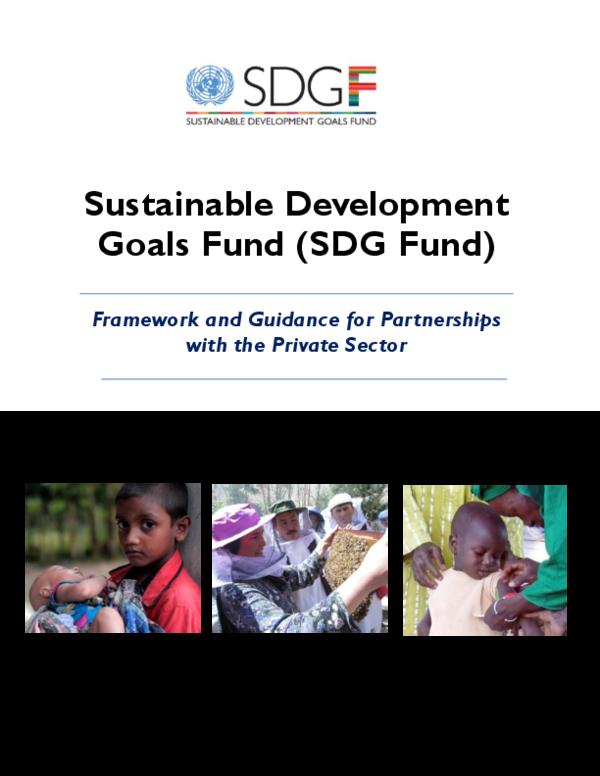How Can You Partner with the SDG Fund?
The SDG Fund has a history of working successfully with a variety of partners (governments, businesses, universities, civil society…) in support of development goals.
As a valued partner, the private sector can benefit from engaging with us through our:
- Understanding of development issues and of the local context in developing countries;
- Convening power that brings together UN agencies, public and private sector stakeholders;
- Facilitation role in developing value chains and engagement across sectors;
- Expertise and mandate in building capacities of governments, private sector and civil society;
In addition, by working with the SDG Fund, combined efforts and contributions can help generate a greater impact and accelerate the SDG Fund’s unique commitment to alleviating poverty and creating innovative joint programs. To accomplish this in a meaningful way, the SDG Fund seeks to co-create projects and establish commitments to collaborate, leverage resources, and improve results reporting to improve livelihoods around the globe.
We believe it is vital to come together to devise innovative solutions, generating knowledge, catalyze financial and in-kind resources and provide greater visibility for an open and meaningful partnership.
To best achieve this, we view partnerships as an evolving process of collaborative engagement with clear steps, including:
- Identify and design: To explore potential partnership, we look to identify potential partners, gather information and create programs that are impactful and linked to a companies’ thematic area of interest. Companies can also support ongoing programs or sponsor existing initiatives on topics relevant to core business, philanthropic or developmental priorities.
- Planning: Once defining priorities are established, partnership initiatives and programmatic outlines can be developed. This often involves outlining next steps, defining a clear plan of action, and formalizing the process through a memorandum of understanding or letter of intent to outline future collaboration.
- Implementation: To effectively implement a partnership and achieve results, the parties must identify shared objectives, including local partners and country level agencies to work with, as well as establish a timeframe for deliverables, ongoing indicators for communication, and guidelines to measure performance.
- Review and follow-up: The SDG Fund seeks to develop relationships with its donor partners, and to equip partners with the tools they need to make an impact and leverage complementary expertise on the ground. By offering a real time monitoring system to effectively evaluate and monitor the partnership and identifying opportunities for continued collaboration, it is likely that projects will be more sustainable and scalable.
Companies are also invited to propose pilot programs and or support existing programs where gaps exist. We invite you to contact us at teresa.burelli [at] undp.org () for more information.


